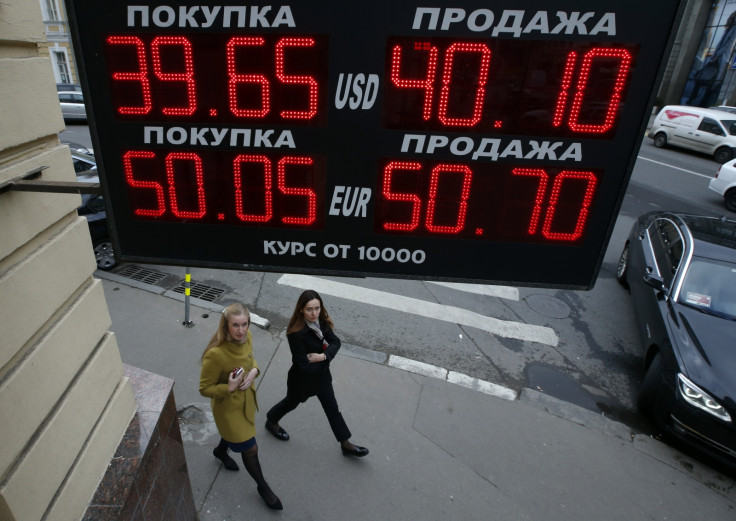Russian rouble tumbles on interest rate hike as capital controls loom large

The Bank of Russia has raised interest rates by 1% to 10.5% in an effort to arrest the calamitous slide of the rouble and to halt rising inflation.
The bank had hiked rates to 9.5% from 8% on 31 October. The latest increase immediately sent the currency crashing further still: falling to new lows of 55.45 against the dollar on the announcement.
Already analysts are speculating that the hike is not enough, with Tim Ash of Standard Bank writing: "The central bank is lagging behind the curve, and is likely to be forced by the market into an even larger rate hike to eventually stop the rot."
Last week, the central bank spent $4.53bn on foreign currency, which sparked an immediate but short-term recovery. It has hit new nadirs on Monday, Tuesday and Wednesday of this week already. The intervention came despite efforts to float the currency in November.
More than $70bn has been spent propping up the rouble in 2014, but it has still lost around 40% of its value against the dollar over the course of the year.
Prices have been rising for Russian consumers, with the country previously dependent on food imports. In August, the Kremlin slapped a one-year ban on the import of fresh foods from Europe, the US, Norway, Japan and Australia. The Bank of Russia said inflation is running at 9.4%, for the year.
Western sanctions imposed in the face of Russian support for rebels in Eastern Ukraine, falling oil prices and widespread capital flight have all combined to create a perfect storm for Russia's economic crisis.
Oil sales account for 70% of the country's exports, but crude prices have been in free-fall since June, losing almost half their value. Oil prices fell by 5% overnight, adding further stress to Russia's financial position.
Last week, President Vladimir Putin suggested that those engaging in currency speculation would be punished. He also signed legislation designed to curb the flow of capital out of the country.
It's thought that $200bn has left the country to offshore schemes this year alone. The new law obliges Russian owners of companies registered in tax havens to pay taxes at home. Under the new law, Russian tax residents must declare profits made from foreign companies. A failure to do so will lead to a financial penalty worth 20% of the unpaid tax.
There has been speculation that the Kremlin will go further in 2015 and introduce capital controls, which would place restrictions on how much money can be withdrawn from banks and how much can be taken overseas.
The country's Finance Minister Anton Siluanov has already asked large exporters such as Rosneft to convert their foreign currency reserves into roubles in order to bolster the currency. Bloomberg reported that Bank of America has already claimed this amounts to capital controls.
Per Hammarlund, Emerging Markets Strategist at SEB, a Swedish bank, warned that the potential of capital controls has already had been felt in the bond markets.
He told the Wall Street Journal: "Now, the widening yield gap between RUB-denominated bonds traded in Moscow versus London suggests that the bond market is starting to price in capital controls by the Russian authorities."
© Copyright IBTimes 2024. All rights reserved.






